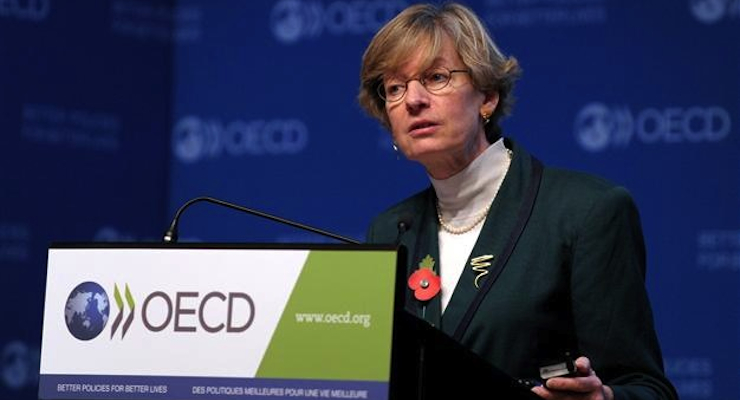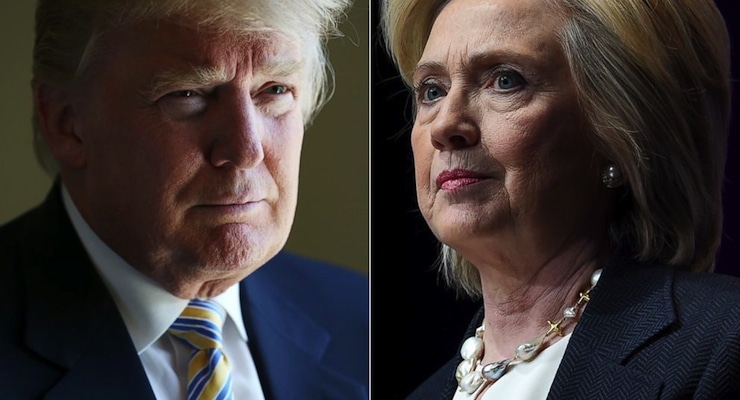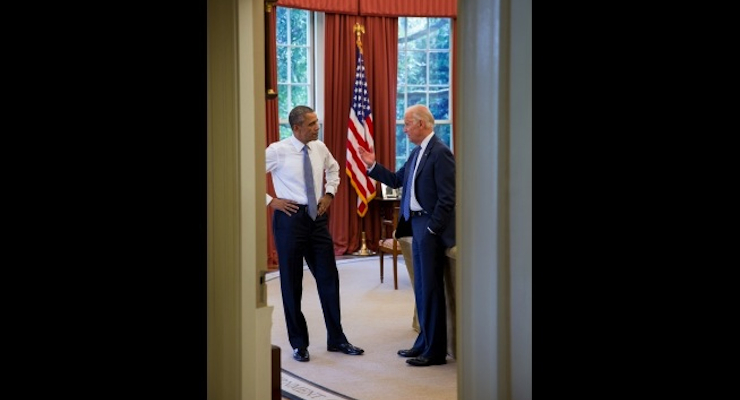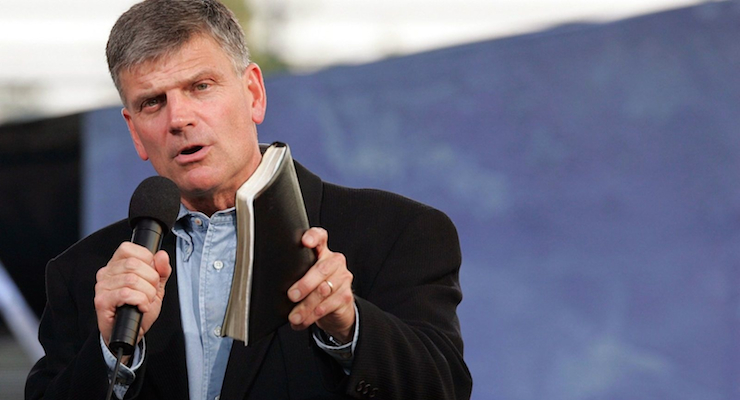
The new chief economist for the Organisation for Economic Co-operation and Development (OECD), Catherine Mann, talks while presenting the advance G-20 OECD Economic Outlook on Nov. 6, at the OECD headquarters in Paris. (Photo: AFP)
It’s time to criticize my least-favorite international bureaucracy. Regular readers probably know that I’m not talking about the United Nations, International Monetary Fund, or World Bank.
Those institutions all deserve mockery, but I think the Paris-based Organization for Economic Cooperation and Development (OECD) is–on a per-dollar basis–the bureaucracy that is most destructive to human progress and economic prosperity.
One example of the organization’s perfidy is the OECD’s so-called Base Erosion and Profit Shifting (BEPS) initiative, which is basically a scheme to extract more money from companies (which means, of course, that the real cost is borne by workers, consumers, and shareholders).
I’ve written (several times) about the big-picture implications of this plan, but let’s focus today on some very troubling specifics of BEPS.
Doug Holtz-Eakin, in a column for the The Wall Street Journal, explains why we should be very worried about a seemingly arcane development in BEPS’ tax treatment of multinationals. He starts with a very important analogy.
Suppose a group of friends agree to organize a new football league. It would make sense for them to write rules governing the gameplay, the finances of the league, and the process for drafting and trading players. But what about a rule that requires each team to hand over its playbook to the league? No team would want to do that. The playbook is a crucial internal-strategy document, laying out how the team intends to compete. Yet this is what the Organization for Economic Cooperation and Development wants: to force successful global companies, including U.S. multinationals, to hand over their “playbooks” to foreign governments.
Here’s specifically what’s troubling about BEPS.
…beginning next year the BEPS rules require U.S.-headquartered companies that have foreign subsidiaries to maintain a “master file” that provides an overview of the company’s business, the global allocation of its activities and income, and its overall transfer pricing policies—a complete picture of its global operations, profit drivers, supply chains, intangibles and financing. In effect, the master file is a U.S. multinational’s playbook.
And, notwithstanding assurances from politicians and bureaucrats, the means that sensitive and proprietary information about U.S. firms will wind up in the wrong hands.
Nothing could be more valuable to a U.S. company’s competitors than the information in its master file. But the master file isn’t subject to any confidentiality safeguards beyond those a foreign government decides to provide. A foreign government could hand the information over to any competitor or use it to develop a new one. And the file could be hacked.
Doug recommends in his column that Congress take steps to protect American companies and Andy Quinlan of the Center for Freedom and Prosperity has the same perspective.
Here’s some of what Andy wrote for The Hill.
It is…time for Congress to take a more assertive role in the ongoing efforts to rewrite global tax rules. …(BEPS) proposals drafted by the Organization for Economic Cooperation and Development…threaten the competitiveness of U.S.-based companies and the overall American economy. …We know the Paris-based OECD’s aim is to raid businesses – in particular American businesses – for more tax revenue… The fishing expeditions are being undertaken in part so that bureaucrats can later devise new and creative ways to suck even more wealth out of the private sector. …American companies forced to hand proprietary data to governments – like China’s – that are known to engage in corporate espionage and advantage their state-owned enterprises will be forced to choose between forgoing participation to vital markets or allowing competitors easy access to the knowledge and techniques which fuel their success.
You would think that the business community would be very alarmed about BEPS. And many companies are increasingly worried.
But their involvement may be a too-little-too-late story. That’s because the business group that is supposed to monitor the OECD hasn’t done a good job.
Part of the problem, as Andy explains, is that the head of the group is from a company that is notorious for favoring cronyism over free markets.
The Business and Industry Advisory Committee…has been successfully co-opted by the OECD bureaucracy. At every stage in the process, those positioned to speak on behalf of the business community told any who wished to push back against the boneheaded premise of the OECD’s work to sit down, be quiet, and let them seek to placate hungry tax collectors with soothing words of reassurance about their noble intentions and polite requests for minor accommodations. That go-along-to-get-along strategy has proven a monumental failure. Much of the blame rests with BIAC’s chair, Will Morris. Also the top tax official at General Electric – whose CEO Jeffrey Immelt served as Obama’s “job czar” and is a dependable administration ally – and a former IRS and Treasury Department official, Morris is exactly the kind of business representative tax collectors love.
Ugh, how distasteful. But hardly a surprise given that GE is a big supporter of the corrupt Export-Import Bank.
 I’m not saying that GE wants to pay more tax, but I wouldn’t be surprised if the top brass at the company decided to acquiesce to BEPS as an implicit quid pro quo forall the subsidies and handouts that the firm receives.
I’m not saying that GE wants to pay more tax, but I wouldn’t be surprised if the top brass at the company decided to acquiesce to BEPS as an implicit quid pro quo forall the subsidies and handouts that the firm receives.
In any event, I’m sure the bureaucrats at the OECD are happy that BIAC didn’t cause any problems, so GE probably did earn some brownie points.
And what about the companies that don’t feed at the public trough? Weren’t they poorly served by BIAC’s ineffectiveness?
Yes, but the cronyists at GE presumably don’t care.
But enough speculation about why BIAC failed to represent the business community. Let’s return to analysis of BEPS.
Jason Fichtner and Adam Michel of the Mercatus Center explain for U.S. News & World Report that the OECD is pushing for one-size-fits-all global tax rules.
The OECD proposal aims to centralize global tax rules and increase effective tax rates on international firms. U.S. technology firms such as Google, Facebook, Amazon and Apple will likely be harmed the most. …the OECD as a special interest group for tax collectors. Over the past 25 years, they have built an international tax cartel in an effort to keep global tax rates artificially high. The group persistently advocates for increased revenue collection and more centralized control. The OECD has waged a two-decade campaign against low tax rates by blacklisting sovereign countries that don’t comply with OECD directives.
Like the others, Fichtner and Michel worry about the negative consequences of the BEPS plan.
The centralization of tax information through a new international country-by-country reporting requirement will pressure some countries to artificially expand their tax base. A country such as China could increase tax revenue by altering its definition of so-called value creation… Revenue-hungry states will be able to disproportionately extract tax revenue from global companies using the newly centralized tax information. …while a World Bank working paper suggests there is a significant threat to privacy and trade secrets. Country-by-country reporting will complicate international taxation and harm the global economy.
Instead of BEPS, they urge pro-growth reforms of America’s self-destructive corporate tax system.
…the United States should focus on fixing our domestic corporate tax code and lower the corporate tax rate. The U.S. [has] the single highest combined corporate tax rate in the OECD. …Lower tax rates will reduce incentives for U.S. businesses to shift assets overseas, grow the economy and increase investment, output and real wages. Lowering tax rates is the most effective way policymakers can encourage innovation and growth. The United States should not engage in any coordinated attempt to increase global taxes on economic activity. …The United States would be better off rejecting the proposal to raise taxes on the global economy, and instead focus on fixing our domestic tax code by substantially lowering our corporate tax rate.
By the way, don’t forget that BEPS is just one of the bad anti-tax competition schemes being advanced by the bureaucrats in Paris.
David Burton of the Heritage Foundation has just produced a new study on the OECD’s Multilateral Convention, which would result in an Orwellian nightmare of massive data collection and promiscuous data sharing.
Read the whole thing if you want to be depressed, but this excerpt from his abstract tells you everything you need to know.
The Protocol amending the Multilateral Convention on Mutual Administrative Assistance in Tax Matters will lead to substantially more transnational identity theft, crime, industrial espionage, financial fraud, and the suppression of political opponents and religious or ethnic minorities by authoritarian and corrupt governments. It puts Americans’ private financial information at risk. The risk is highest for American businesses involved in international commerce. The Protocol is part of a contemplated new and extraordinarily complex international tax information sharing regime involving two international agreements and two Organization for Economic Co-operation and Development (OECD) intergovernmental initiatives. It will result in the automatic sharing of bulk taxpayer information among governments worldwide, including many that are hostile to the United States, corrupt, or have inadequate data safeguards.
I wrote about this topic last year, citing some of David’s other work, as well as analysis by my colleague Richard Rahn. The bottom line is that the OECD wants this Multilateral Convention to become a World Tax Organization, with the Paris-based bureaucracy serving as judge, jury, and executioner.
That’s bad for America. Indeed, it’s bad for all nations (though it is in the interest of politicians from high-tax nations).
[mybooktable book=”global-tax-revolution-the-rise-of-tax-competition-and-the-battle-to-defend-it” display=”summary” buybutton_shadowbox=”true”]
















